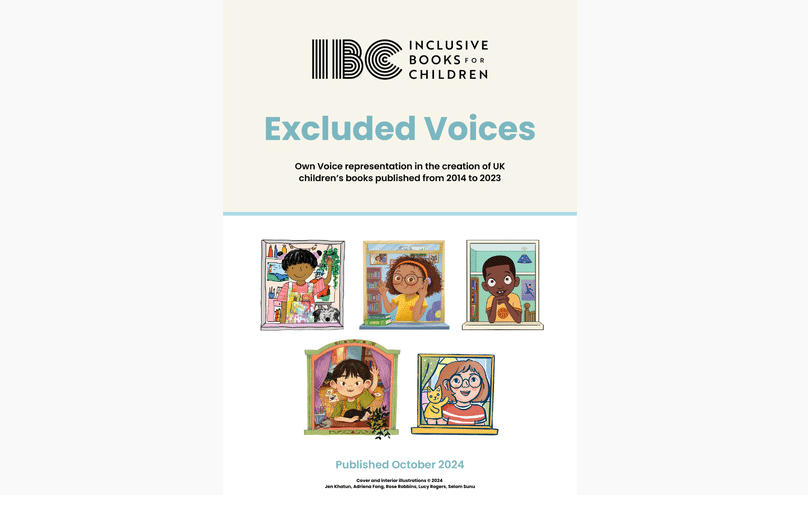A new report from the charity Inclusive Books for Children (IBC) has shed light on the stark lack of representation among creators of children’s books featuring marginalised main characters. The annual Excluded Voices report examines the extent to which books published in the UK over the past decade reflect the identities of their characters, particularly in the context of race, disability, and neurodivergence.
The report identifies 568 traditionally published children’s books aimed at ages 1 to 9 from 2014 to 2023, featuring main characters from minoritised backgrounds. Shockingly, it reveals that only 41.5% of these books were created by British Own Voice authors, meaning that the majority of the narratives about marginalised characters are being told by those outside of these communities.
The data highlights significant disparities in representation, particularly regarding ethnicity. A staggering 78.3% of books featuring minoritised ethnic characters were focused on Black or ambiguously Black and brown protagonists. Alarmingly, 53% of these books were authored or illustrated by white creators. In the case of the 142 picture books with a Black main character, only 45% were created by Black British authors.
Moreover, the report pointed out that picture books featuring South Asian and East or Southeast Asian characters were remarkably limited, with only 24 and 25 titles identified, respectively. In terms of disability representation, the findings were equally concerning. Out of six children’s fiction books featuring neurodivergent characters, none were authored by neurodivergent creators, while only three disabled authors contributed to the 19 books featuring disabled protagonists.
Markus Satha, co-founder of Inclusive Books for Children, commented: “The commission of storybooks for younger audiences featuring characters of colour and disabled or neurodivergent protagonists has predominantly been fulfilled by white, able-bodied, neurotypical creators. This lack of Own Voice representation is not reflective of the UK’s evolving demographics and attitudes.”
Fabia Turner, Head of Content for IBC, emphasised the urgent need for change within the publishing industry. “Publishing must create more space for marginalised creators who wish to tell their own stories,” she stated, adding that the current approach to diversity often results in superficial representations rather than genuine inclusivity.
Contributors to the report, including authors James and Lucy Catchpole, expressed concern over the authenticity of representation created by those without first-hand experience of the identities they portray. Similarly, author Ken Wilson-Max noted the absence of authentic voices in books for early years, underscoring the need for genuine representation from within these communities.
The report calls for the publishing industry to rethink its approach to diversity, moving away from tokenism and trend-driven commissioning. Writer Maisie Chan suggested that publishers often misjudge the market by assuming that stories featuring East and Southeast Asian characters won’t sell.
The IBC has responded to the findings by compiling a recommended reading list of exemplary British Own Voice children’s books, aimed at providing families, schools, and libraries with more inclusive reading options. The report serves as a call to action for the UK children’s publishing sector to better reflect the rich diversity of society and to uplift authentic voices from marginalised backgrounds.

